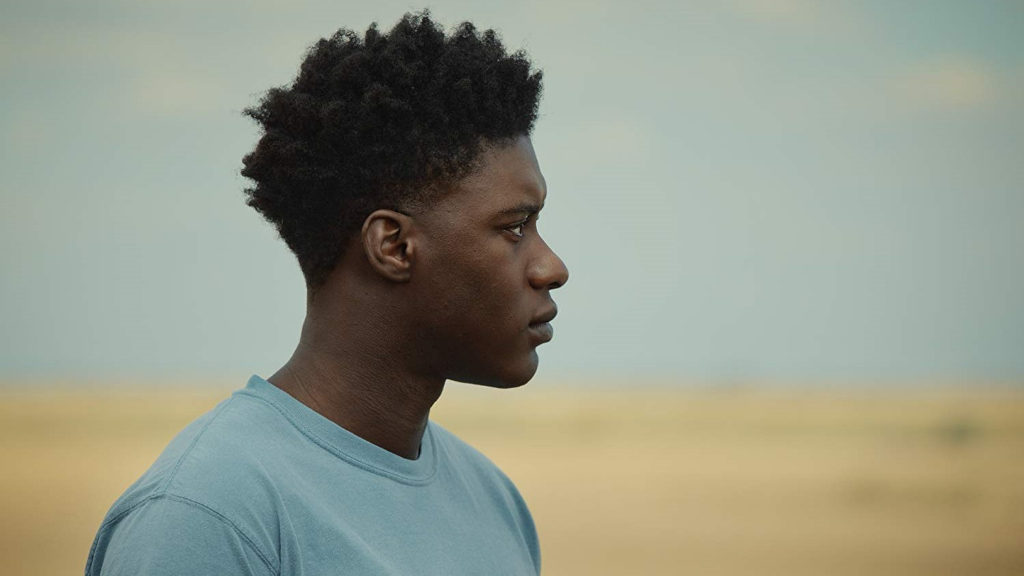The Last Tree

Shola Amoo’s second feature, The Last Tree is a semi-autobiographical coming-of-age drama centred on a young boy of Nigerian heritage whose life completely changes when his birth mother comes to reclaim him.
Femi (newcomer Tai Golding) is a happy 11-year-old living in the Lincolnshire suburbs with his loving white foster carer Mary (Denise Black.) A confident chap amongst predominantly white friends, the young boy’s world soon crumbles when his mother – portrayed to intimidating effect by Gbemisola Ikumelo – returns to take him back into her care. Moving to a deprived area of South London, the protagonist’s once comfortable existence is upended by imposed chores and a strained relationship with his mum; if the errands are left incomplete, she beats him. Golding gives a great debut performance as the once carefree boy turned solemn and subjugated; the role is difficult to capture without being melodramatic, but the young actor succeeds. Femi’s displacement and his ensuing enrolment into an academy sees the boy being picked on and bullied for his Nigerian full first name, Olufemi, as well as his skin colour, darker in comparison to his other black classmates.
A number of years pass, and Femi is now a teenager, played by Sam Adewunmi, who also gives a striking performance in his first major role. The youth’s life has been shaped through his formative years in the city, where he’s learnt to acclimatise; the bullies from earlier on are now his friends. As the adolescent inadvertently finds himself recruited by local gang leader Mace (Demmy Ladipo) we see his struggles with what’s morally right in conflict with how he was raised. Stil Williams’s visually stunning cinematography captures the harsh realities of the city, contrasted with the golden fields of Femi’s first home.
The teenager’s relationship with his mother is still tense, the protagonist having come to quietly accept his fate, and it is not only he who has the audience’s sympathy: we empathise with her too; a single parent working multiple jobs and raising a child is far from easy. His resentment towards her remains bottled up, only cracking when schoolteacher Mr Williams (Nicholas Pinnock) encourages him to talk in one of the film’s defining moving scenes.
It is easy to recall Barry Jenkins’s 2016 drama Moonlight, which also explores black masculinity, and like the American director Amoo also examines cultural identities, but there is a refreshing British quality to The Last Tree that truly resonates. When we eventually see Femi in Lagos, Nigeria, it is a humbling experience both for the character and viewers, as the adolescent reconnects with his roots and finally understands just some of the sacrifices his mother made.
Selina Begum
The Last Tree is released in select cinemas on 20th September 2019.
For further information about Sundance London 2019 visit here.
Read more reviews from the festival here.

























Facebook
Twitter
Instagram
YouTube
RSS